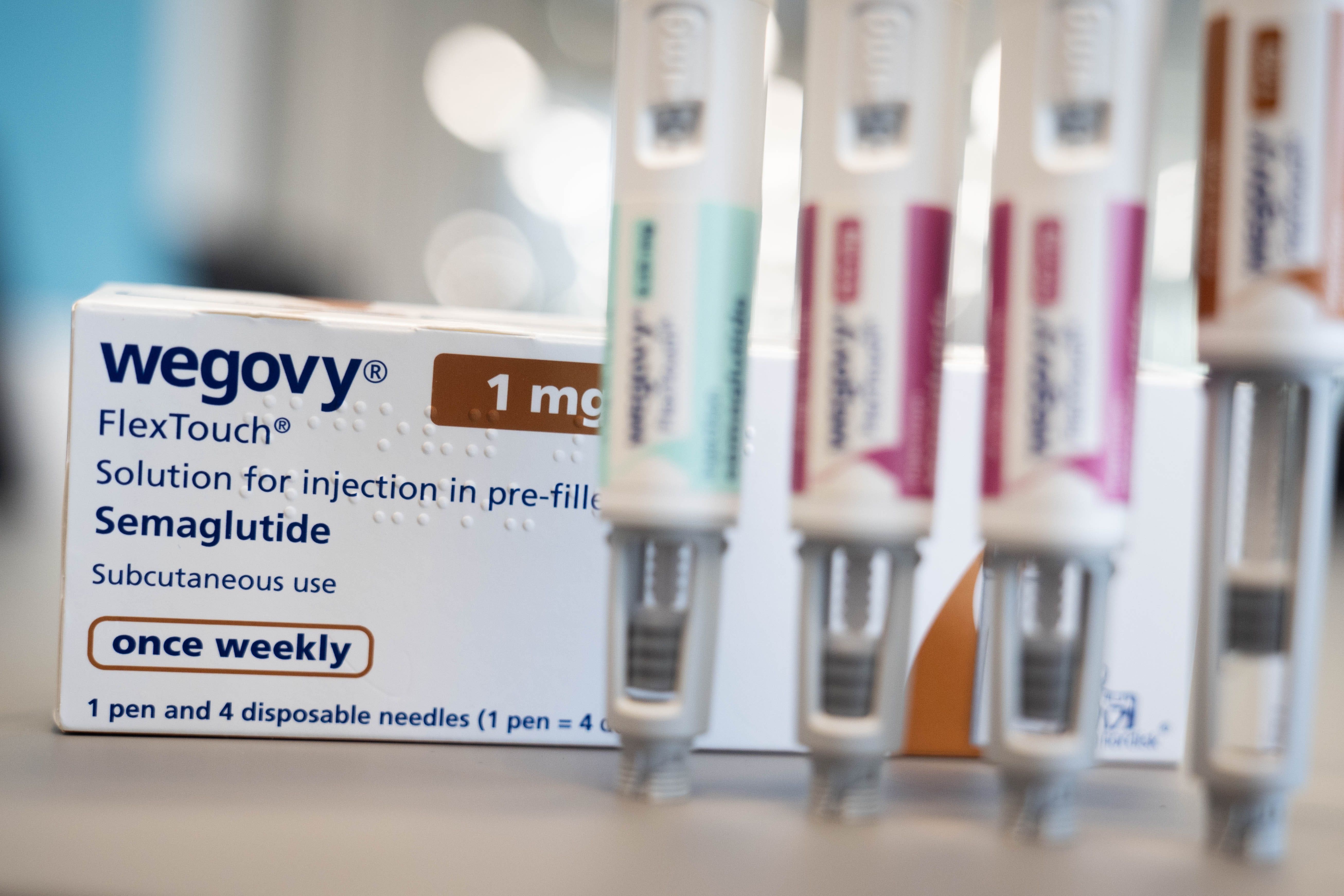ARTICLE AD BOX
Experts suggest that weight-loss jabs may require long-term use to achieve lasting benefits for both patients and the NHS.
These drugs, marketed under names such as Mounjaro and Wegovy, function by curbing food cravings. Currently, obese patients can access these injections through NHS prescriptions, following referrals to specialist weight loss clinics typically based in hospitals. Additionally, hundreds of thousands of individuals are obtaining the medication privately through pharmacies.
There have been warnings about buying potentially unsafe jabs online from unregulated retailers and potentially missing out on wraparound support.
Experts said the jabs should not be seen as the first option in weight loss and should be used in conjunction with lifestyle changes, such as eating more healthily and increasing exercise.
Professor Graham Easton, a GP who has been using weight loss jabs himself, said: “I think it’s a major issue about the proper funding and resourcing of not only the GPs in the surgeries but also the wraparound care we talked about.
“I think the other issue is that so far, to my knowledge, the NHS and National Institute for Health and Care Excellence have talked about this being something you take for two years, and that’s probably related to data from research studies.
“But as we discussed, this is likely to be a lifelong commitment if it is going to be worthwhile to the NHS.
“There’s no point in most people taking it for a couple of years and then have the weight bouncing back.
“You can argue possibly you’re about to prepare for surgery or something, but in most cases it doesn’t make any sense.
“Then I think there’s a big issue around access. Most obesity occurs in poorer populations as wealthier populations tend to not be so affected.
“There’s a massive sort of socio-economic inequality and there is a worry about this driving that inequality even further.
“Unless the NHS makes sure that these are available across the board equally, I think that’s a major risk.”

Prof Easton said recent studies had shown people who stopped taking the drugs had put the weight they lost back on within around a year.
“That’s often true of any diet, people would say, and that’s certainly my experience of having wrestled with my weight in diets over the years,” he said.
“All I would say that I found interesting from that review was that they were suggesting perhaps that weight returns even quicker after having been on GLP-1 drugs.
“Then speculating, because there was no way of knowing from that review, that perhaps it’s because people are not changing the behaviours we’ve been talking about like exercise and other lifestyle changes, just relying on the drugs.
“When you stop them, of course, you’re going to put weight back on. The switch is turned back off, or whatever it was.
“I mean very similar to, for example, statins or anti-hypertensive blood pressure medications, if you want lifelong effects, you have to keep on them lifelong.”
Prof Easton was speaking at an event at the Cheltenham Science Festival discussing the growing use of weight loss drugs with neurophysiologist Dr Simon Cork and consultant endocrinologist and obesity expert Dr Tony Goldstone.
Dr Cork said the jabs have an important role to play in losing weight but are part of wider changes to diet and lifestyle.
“I think we have to understand that diet is always limited. People will tend to lose on average around 5% of their body weight on a diet,” he said.
“But you’re hungry, you’re miserable, you’re tired, your wife hates you because you’re so grumpy, you’re not going to continue with that.
“But we should absolutely all be looking at our diet and all changing our diet, and doing something.”
Dr Goldstone said weight loss drugs had been used in the treatment of diabetes for over a decade and had benefits of reducing the risk of developing other conditions.
“We’re now in the third and fourth generation of these drugs, but the first generation of these drugs we’ve been using for 15 years for diabetes,” he said.
“There is nothing of concern that has emerged. In fact, all we’re seeing are benefits. I’m not too worried about longer term side effects coming out.
“There is no real biological reason why there should be dangerous side-effects in the way that we know these drugs work.
“The benefits of the weight loss improvement in the diabetes are actually by themselves helping health and preventing other diseases, like cancer, heart attacks, renal failure, and potentially even reducing the risk of Alzheimer’s disease.
“All those benefits, even if there was something that we hadn’t really thought of that emerged down the line, I suspect that the harm of that is outweighed by the potential benefits of weight loss improvement in diabetes control.”
Dr Cork said no drug is without side-effects and previous weight loss medications had failed because of them.
“There are side-effects, there are some concerning side-effects that tend to be very rare, but then you can monitor for those side-effects,” he said.
“As long as you’re getting the correct care, as long as your GP is aware that you’re taking them, then those should be identified.
“If you do find those side-effects, you can stop taking the drug.”









 English (US) ·
English (US) ·